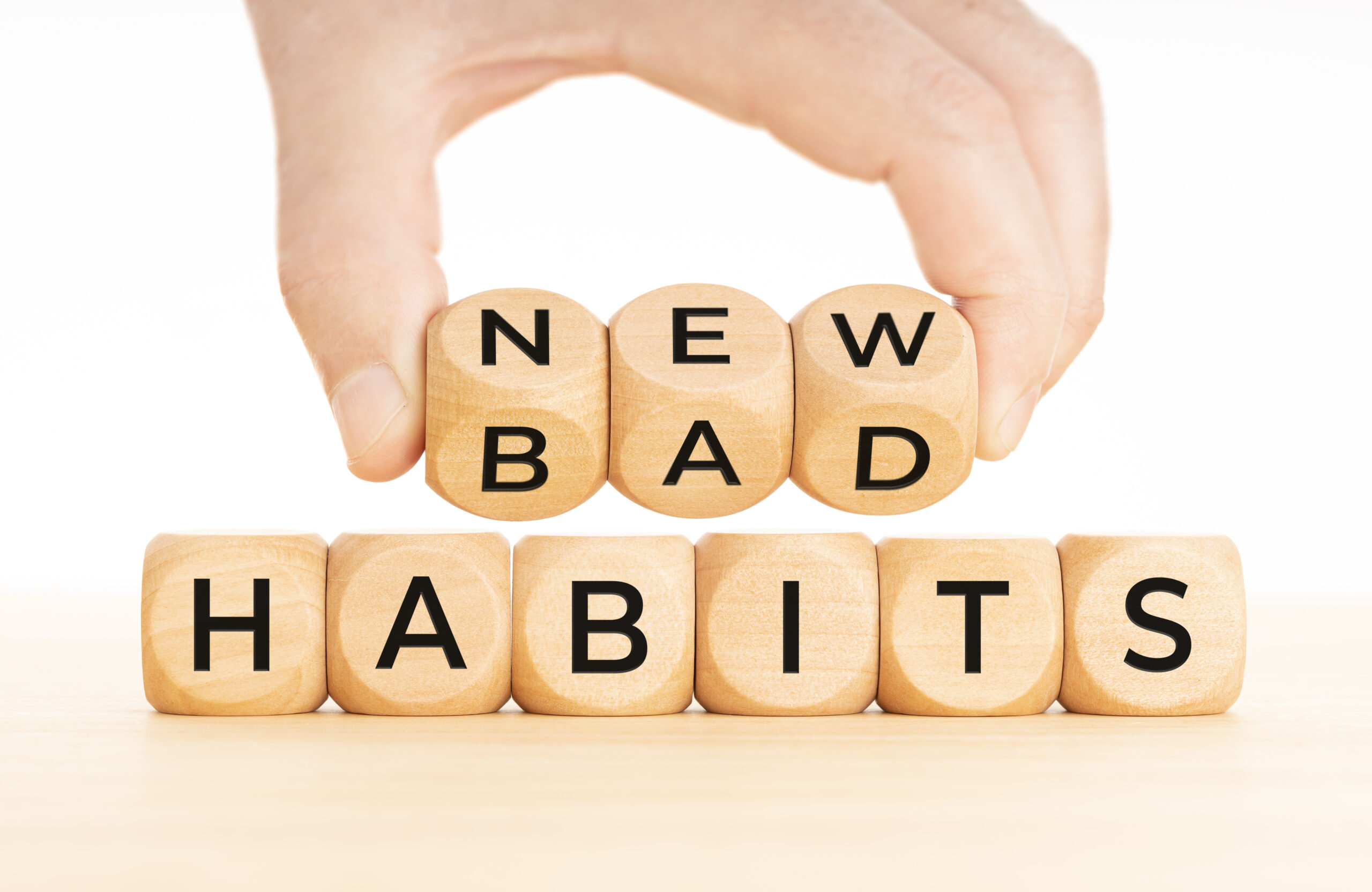Picture awakening each morning greeted by an unyielding determination to conquer your aspirations. Though seemingly distant, this vision is within reach. It all hinges on the power of habit.
Our lives are like intricately woven tapestries of action and consequence. They are shaped by the habits and rituals we nurture, often without conscious awareness. From mundane tasks like brushing our teeth to lofty pursuits like career and personal growth, our daily routines dictate the trajectory of our existence.
Within this web of routine lies a profound opportunity to embrace the power of habit as a tool for transformation. You must peer into the inner workings of habit formation to master the art of intentional behavior and unlock the gateway to your fullest potential.
“The chains of habit are too light to be felt until they are too strong to be broken.” – English writer Samuel Johnson.
Samuel Johnson’s quote implies that our life habits slowly form and become deeply rooted before we even notice. These habits can contribute to our well-being or trap us in detrimental behaviors.
Many people have told me that my superpower is self-discipline. From a young age, I never procrastinated when completing my homework. I vividly remember getting a good night’s sleep before handing in an exam paper while a friend stayed up late, cramming the night before. Was my discipline something innate or taught? It was likely a combination of both, as my parents wouldn’t let me play outside until my homework was done.
Meanwhile, some studies show that approximately 40% of our daily behaviors are driven by habits. As an adult, I have developed habits that have stuck with me for years: going to bed early, working out in the early morning, and cooking meals on Sundays for the week ahead. I formed some of these habits out of necessity, as my wife expressed concerns that working out after a long day would compromise our relationship.
I adjusted the timing of my workouts to before work, allowing me to spend more time with her and our eventual family. Now, even when I have the option to work out in the afternoon or evening on weekends, I still prefer exercising in the morning. It has become a habit that I naturally gravitate towards.
The Power of Habit: Metaphorical Steel Beams
I like to think of habits as the metaphorical “steel beams” of our lives, similar to the beams that support a house. Once they are firmly in place, they provide stability.
Unfortunately, sometimes people establish habits that are harmful in the long run. A wide range of bad habits exist in humanity, such as procrastinating on completing a project or biting one’s fingernails. In more severe cases, these habits can escalate and become even more damaging, like the habit of consistently drinking with friends late into the weekend, which may eventually lead to substance abuse.
Initially, these behaviors may not cause alarm since the “steel beam” is not yet firmly set in the foundation. However, once the habit becomes settled and fixed, it can become tricky to remove or change.
Our habits define who we are. Show me your habits, and from that, I can likely pick up clues about your life: the strength of your relationships, the trajectory of your career, or the status of your health. Your priorities are evident from your habits and a glimpse into your character. “We are what we repeatedly do,” as Aristotle stated.
When Jerry Seinfeld was a touring comic, a young comic named Brad Isaac sought his advice. Seinfeld’s response was simple yet profound: “Don’t break the chain!” His approach involved writing jokes every day. Seinfeld displayed a big calendar on the wall that showcased the entire year. Whenever he wrote a joke, no matter how short, he marked that day with a big red X. Seeing a calendar covered in big red X’s was incredibly inspiring. He didn’t want to see an unmarked day staring back at him for the rest of the year. Hence, the motto “Don’t break the chain!”
I follow the same approach in my life. When I had an early morning medical procedure, I ensured that I meditated before leaving the house. The reason? I wanted to experience the calmness induced by meditation; additionally, I had nearly two years of consecutive days of meditation. I didn’t want to break the chain (cue the Fleetwood Mac song”The Chain”).
Stoic Perspectives on the Power of Habit
I’m keeping a commitment to myself regarding the transformational practice of meditation. It doesn’t matter whether it’s a good or bad day; what truly matters to me is delving within and finding peace through my daily meditation.
Same with my commitment to prayer, as I pray when I get up in the morning and before I go to bed. My relationship with God, like any relationship, is a priority and needs cultivation. I have faith in the Divine’s steadfast devotion to me. In the silence of my heart, I attempt to make it reciprocal.
The Stoics believed in the power of habits. They even talked about replacing bad habits with good ones. Epictetus, in Discourses, states the importance of finding good habits to cultivate and replace old habits. He stated,
“In general, then, if you want to do something, make a habit of doing it; and if you don’t want to do something, don’t do it, but get into the habit of doing something else instead. The same also applies to states of mind. When you lose your temper, you should recognize not only that something has happened to you at present but also that you’ve reinforced a bad habit, and you have, so to speak, added fresh fuel to the fire….some habits and capacities will be developed if they didn’t previously exist, while others that were already present will be reinforced and strengthened.”
Thus, our journey begins: a quest to understand, harness, and ultimately transcend the power of habits, paving the way for a life marked by purpose, fulfillment, and unyielding achievement.
Understanding the Power of Habit
Habits are the silent architects of our lives, shaping our daily routines, decisions, and, ultimately, our destinies. Defined as the routines and behaviors we perform almost automatically, habits operate beneath the surface of conscious thought, guiding our actions from the moment we wake until we rest our heads at night.
At their core lies the intricate dance of the habit loop—a cyclical process involving cues, routines, and rewards. It begins with a mental, physical, or spiritual cue, a trigger that prompts our brain to initiate a particular behavior.
Whether it’s the ding of a notification or the sight of a tempting snack, cues set the stage for action. Next comes the routine, the habitual response to the cue, ingrained through repetition and reinforced by the promise of a reward. Finally, rewards are the fuel that perpetuates the loop, reinforcing the behavior and solidifying it in our neural circuitry. As explained by Dr. Sanam Hafeez, a clinical psychologist and neuropsychologist based in New York City, “Any habit we develop is because our brain is designed to pick up on things that reward us and punish us.”
How Habits Form
Let’s explore the remarkable role of neuroscience in habit formation. Within the labyrinth of our brains, intricate neural pathways are forged with each repetition of a behavior, creating shortcuts that streamline future actions. As we engage in a routine, neurons fire in synchrony, wiring together to encode the habit into our brain’s architecture.
With each repetition, these connections strengthen, cementing the habit into our subconscious and making it increasingly resistant to change. This phenomenon, known as neuroplasticity, underscores the remarkable adaptability of our brains, allowing us to learn, unlearn, and relearn habits throughout our lives.
By recognizing the neural mechanisms that underpin habit formation, we gain insight into how to disrupt and reshape ingrained behaviors. Armed with this knowledge, we can strategically intervene in the habit loop, replacing old routines with new, more adaptive ones. Through deliberate practice and repetition, we forge new neural pathways, rewiring our brains to align with our aspirations and values.
Understanding our habits is the first step toward mastering them. By unraveling the intricacies of the habit loop and delving into the neuroscience behind habit formation, we gain the tools to break free from the shackles of automaticity and chart a course toward intentional living. Armed with insight and determination, we embark on a journey of self-discovery and transformation, harnessing the power of habits to sculpt our destinies and realize our fullest potential.
Identifying Good and Bad Habits
Self-awareness serves as the compass guiding our journey toward personal growth and fulfillment. It’s the foundation upon which we build our understanding of the habits that shape our lives. By turning our gaze inward, we can illuminate both the bright beacons of beneficial habits and the shadowy corners of detrimental ones. Introspection enables us to recognize the patterns that govern our behaviors, empowering us to make informed choices about the habits we cultivate.
A habit audit acts as a spotlight, illuminating the intricacies of our daily routines with unwavering clarity. Through this process of introspective examination, we gain insight into the habits that propel us forward and those that hold us back. Assessing our behaviors means we can pinpoint areas for improvement and identify opportunities for growth and change.
The Power of Habit: Deciding Which Habits Serve You Best
Deciding which habits serve you best is a pivotal step in your journey toward personal growth and fulfillment. It requires a deep sense of self-awareness, discernment, and a willingness to challenge ingrained patterns of behavior. Here’s how you can navigate this process effectively:
- Cultivate self-awareness by reflecting on your current habits and their impact on your life.
- Determine beneficial and detrimental habits, considering how they align with your values, goals, and overall well-being.
- Assess the outcomes of each habit.
- Identify which habits contribute positively to your life, helping you thrive physically, mentally, emotionally, and spiritually.
- Recognize habits that hold you back, drain your energy, or hinder your progress toward your aspirations.
- Consider the long-term consequences of all your habits.
- Ask yourself whether they align with the vision you have for your future self.
- Evaluate whether they support your goals and aspirations or if they detract from them.
Prioritize habits that nourish and empower you. Then, choose habits that cultivate resilience, growth, and self-improvement. Look for habits that align with your values and contribute to your overall sense of fulfillment and purpose.
Be willing to let go of habits that no longer serve you. Recognize that change can be challenging, but trust in your ability to adapt and evolve. Replace old habits with new ones that better align with your values and aspirations.
Finally, commit to cultivating habits that support your growth and well-being. Consistently practice these habits, knowing that small, consistent actions can lead to profound transformations over time. Remember, don’t break the chain!
The Power of Keystone Habits
Keystone habits, like the cornerstone of a structure, catalyze profound transformations in our lives. These small changes wield outsized influence, setting off a chain reaction that reverberates across multiple facets of our existence.
Defined by their significance and far-reaching impact, keystone habits serve as catalysts for positive change, reshaping our behaviors and attitudes from the inside out.
Examples of keystone habits abound, each bearing the potential to ignite a cascade of transformation. Exercise, for example, boosts health and enhances mood and productivity. Mental wellness practices foster inner peace and resilience, permeating every aspect of our lives with a sense of calm and clarity. Meanwhile, a strong spiritual connection empowers us to chart a course toward honorable aspirations, guiding our actions with purpose and intention.
By focusing on one key habit, we unlock the gateway to broader transformations. As we commit to a keystone habit, we sow the seeds of change, cultivating a fertile ground for growth and self-improvement. With each small step forward, we harness the power of keystone habits to sculpt our destinies and realize our fullest potential. Below are a few examples of keystone habits that can benefit the mind, body, and spirit.
Examples of Mental Habits
- Examining thoughts and thinking patterns before reacting.
- Studying the underlying cause of habits and their impact on your life.
- Reminding yourself that whatever happens to you is your interpretation, not the event itself.
- Identifying triggers of good and bad habits.
- Retaining control of your reaction and attitude.
In addition, write down something you are grateful for each day for one week. This practice will help you actively seek out things to show gratitude toward, just like when we have our eyes set on a particular car brand and suddenly start noticing it everywhere we go.
If you are experiencing any relationship issues, especially with a loved one like your spouse, try keeping a gratitude log for a week and then share it with them. As a personal example, I diligently maintained a daily gratitude journal for six months for my wife, and I presented it to her as a gift on her birthday. She absolutely loved it.
Examples of Physical Habits
- Exercise daily, even if for a short time.
- Move your body throughout the day.
- Eat a mindful and nutritious diet.
As stated previously, I make it a habit to cook food on a Sunday so it’s prepared in advance for the week (ex., rice, quinoa, hard-boiled eggs, etc.). I also work out in the morning, so I lay out my exercise clothes the evening before to give myself a visual reminder. That way, I don’t have to think about it or remember anything before heading to the gym.
Examples of Spiritual Habits
- Praying daily at a specific time.
- Connecting weekly or monthly with local faith communities.
- Reading scripture related to your faith to deepen your understanding.
Here are some things I do in my daily life. I take time not to judge prematurely or jump to a conclusion if someone has wronged me. I give them the benefit of the doubt by inquiring about them and their circumstances. This goes for not just adults, but especially for children, in which mistakes are common and part of their maturation.
Show compassion towards yourself when you make a mistake. Compassion should be extended not only to others but also to oneself, especially when dealing with the “inner critic.”
Conclusion
As you tread this path of growth and evolution, remember the timeless wisdom encapsulated in pastor, singer, and songwriter Mike Murdock’s words: “The secret of your future is hidden in your daily routine.” Let this quote serve as a guiding light, illuminating your way forward and reminding you of the profound impact your habits have on your life.
With courage, perseverance, and a steadfast commitment to change, you hold the power to transform your reality and craft a future beyond your wildest dreams.
If you are having difficulty establishing a habit or start to lose momentum in habit creation, be kind to yourself. It’s not easy, as habits take weeks to be established. Self-compassion and resiliency on your journey to create a positive habit are critical.
Return to the “north star” of meaning and purpose of why you’re even trying to create a habit? Why is it important to you? How might the new habit help others? Keep the purpose “front and center” as you try to employ a new habit.In order to maintain and progress on your path of personal transformation, it is vital to understand the significance of habits. By adopting beneficial habits and letting go of those that no longer benefit you, you can unlock your true potential.




